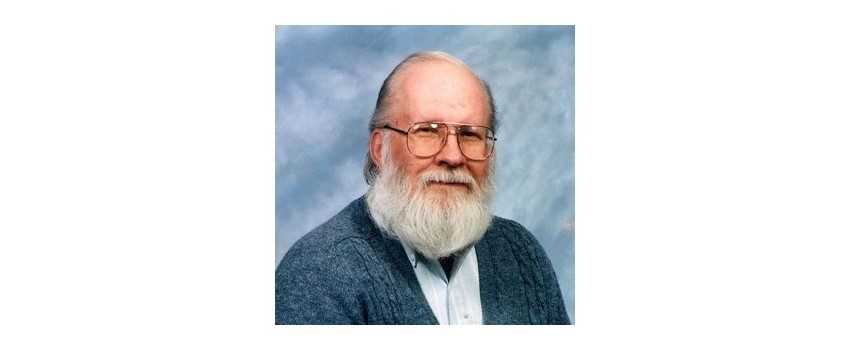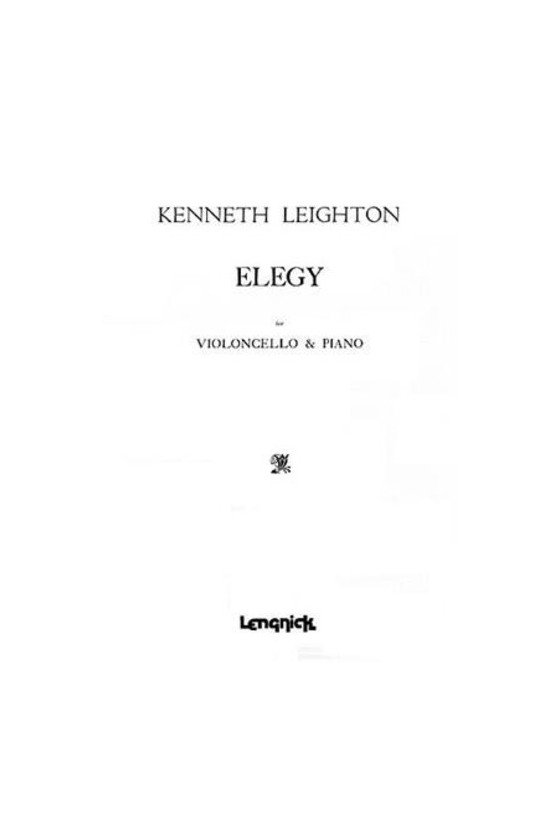Leighton, Kenneth
Kenneth Leighton's contributions to classical music are significant, although his name may not be well known to many music enthusiasts. Born in Wakefield, England, in 1929, Leighton was a prolific creator of works for choir, organ, orchestra, and chamber groups. His music is characterized by its emotional depth, technical brilliance, and striking beauty. Despite his relatively short life, Leighton left an impressive musical legacy that continues to inspire and captivate audiences today.
Early Life and Education
Kenneth Leighton was born in Wakefield, England, in 1929. He was the youngest of three children, and his family was not particularly musical. However, Leighton showed early musical aptitude, and his parents encouraged him to pursue his passion. He began piano lessons at six, and by the time he was a teenager, he was already composing his music.
Leighton studied at Queen's College, Oxford, where he earned a Classics degree. At Oxford, he was also heavily involved in the music scene, playing the organ at various churches and composing music for the university's musical groups. After leaving Oxford, Leighton studied composition at the Royal Academy of Music in London, where Lennox Berkeley and Howard Ferguson taught him.
Leighton's early years as a student significantly impacted his musical style and approach. His classical education gave him a deep understanding of the structure and form of music. At the same time, his experiences at Oxford and London exposed him to various musical influences.
Musical Style and Influences
Leighton's music is characterized by its emotional depth, technical brilliance, and striking beauty. He was a master of harmony and counterpoint, and his works often feature complex textures and intricate rhythms. His music is also known for its expressive melodies and rich harmonies, often inspired by the great composers of the past.
The music of J.S. Bach deeply influenced Leighton, and his works often reflect the Baroque master's contrapuntal style and use of complex harmonic progressions. However, Leighton's music is also infused with elements of Romanticism and Modernism, making it a unique blend of old and new.
Leighton's religious faith was also a significant influence on his music. He was a devout Christian, and many of his works were inspired by his faith. His choral music, in particular, often features religious texts and themes, and his use of harmony and melody is designed to evoke a sense of spiritual awe and wonder.
Major Works and Their Significance
Leighton was a prolific composer whose works spanned a wide range of genres and styles. Some of his most famous works include his Symphony No. 2, his Requiem, and his Organ Concerto No. 2. Each of these works showcases Leighton's unique musical style and approach while highlighting his technical brilliance and emotional depth.
Leighton's Symphony No. 2, written in 1967, is one of his most celebrated orchestral works. It is a powerful and emotional work featuring complex harmonies and rhythms and moments of great beauty and tenderness. The symphony is often seen as a reflection of Leighton's struggles with depression, and its emotional intensity has made it a favorite of audiences and critics alike. Another of his most famous works is Leighton's Requiem, written in 1964. It is a choral work featuring a setting of the traditional Latin Mass for the Dead. However, Leighton's musical style gives the piece a unique emotional depth and beauty, making it a powerful meditation on mortality and the fragility of life.
Leighton's Organ Concerto No. 2, written in 1971, is a virtuosic work for solo organ and orchestra. It is a technically demanding piece featuring complex rhythms, harmonies, and moments of great beauty and tenderness. The concerto is often seen as a showcase for Leighton's talents as both a composer and an organist, and its popularity has made it a staple of the organ repertoire.
Leighton's Impact on British Musical Culture
Kenneth Leighton's contributions to British musical culture were significant. He was a respected composer and teacher, and his music profoundly impacted the classical canon. He was also a prominent figure in the British music scene, collaborating with some of the most celebrated musicians of his time.
The major orchestras and choral groups often performed Leighton's music in the UK, and his works were also widely performed abroad. He was also a respected teacher, and many of his students went on to have successful careers in music. Leighton's legacy continues to inspire and captivate audiences today. Orchestras, choirs, regularly perform his music and chamber groups worldwide, and his influence can be seen in the works of many contemporary composers.
Conclusion
Kenneth Leighton was a remarkable composer whose contributions to classical music were significant. Its emotional depth, technical brilliance, characterizes his music and striking beauty, and his works continue to inspire and captivate audiences today. Leighton's legacy is a testament to the power of music to move and inspire us. His unique perspective on music and his ring contributions to the classical canon have made him one of his generation's respected and celebrated composers.


